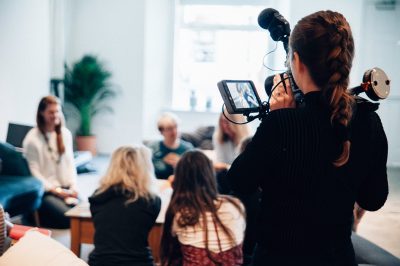Ten Benefits of Media Training for Charities

Often when charities are looking at their PR budgets and considering whether they should include media training, it is regarded as a “nice to have” rather than essential.
There are, however, several benefits to putting your senior leaders and experts through a programme of training, some obvious, some not:
- When your charity has opportunities to promote itself in the media, if you have a trained a group of senior leaders and experts, you can have confidence that they will be able to talk about what you do in an engaging, interesting, compelling way.
- Delegates learn how to take control of an interview, so they are not just answering the questions posed, but using each one as a springboard to deliver one of the charity’s key messages – and leading the journalist to ask the questions they want to answer.
- Those who have been trained will be more aware of how to present information about the charity’s mission and campaigns in a way which resonates with an audience, using memorable stories, case studies and anecdotes, as well as evidence, to support your key messages.
- If you plan to ask beneficiaries to give interviews as part of a campaign, media training can ensure they know what to expect, and give them the confidence to answer the questions posed.
- Media training also teaches the importance of clarity and brevity when making your point. All too often, people’s most important messages get lost because speakers have the urge to elaborate and expand and elucidate – and generally say too much. We demonstrate how much more effective it is to make your point and then stop, so people have time to take it in – a benefit which can be used every time a spokesperson is talking about what you charity does.
- Delegates will improve their delivery – in interviews and also when they are in meetings, on virtual calls, at conferences or giving other presentations. Our media training courses always include coaching in how to use your voice more effectively, and about body language and dress.
- Every media training course should have a section on dealing with unexpected questions. These aren’t only asked when your charity is in the spotlight for the wrong reasons, they can be questions which asking you to comment on controversial issues, pushing you to make political judgements, or on topics which are unrelated to the subject of the interview. Whatever the reason, your spokespeople need to know how to respond elegantly and fluently, bringing the interview back to their safe ground and the points they want to make. These skills can be used, not just in interviews, but in the Q and A section of conference speeches, in meetings and when they are on panels.
- When your charity is in the eye of a media storm, you need spokespeople who have had been taught techniques, such as bridging, to help them answer challenging questions, and who have the confidence to defend your charity and make your case. Media training courses can focus on this, and work on spokespeople’s responses.
- Delegates learn about how the media operates and what journalists are looking for, which can be invaluable when communications teams are working on potential campaigns with both senior leaders and experts as it helps them understand what will work – and what will not.
- And finally, clients often report that courses have been a real bonding and team–building experience and delegates have had a valuable opportunity to brainstorm, discuss and refine their strategies, ideas and key messages.
Media training has a wide range of benefits beyond simply learning how to answer questions and can come in all shapes and sizes. Courses can be for groups and one-to-one, be run face to face or remotely, can be combined with presentation skills training, can include sections on developing key messages or can focus solely on crisis interviews.
By Ann Wright, for Consultdarcy.
Rough House Media
www.roughhousemedia.co.uk

